Essays in Fragility: Shadow Banking, Housing Inventory and Liabilities
Denial doesn't change reality. It only cripples our response to reality.
Psychologists and behavioral economists have found that we deceive ourselves (conceal the truth) to serve our own interests. Perhaps this is why the mainstream ignores the Id Monsters in the shadows: shadow banking, shadow housing inventory and shadow liabilities.
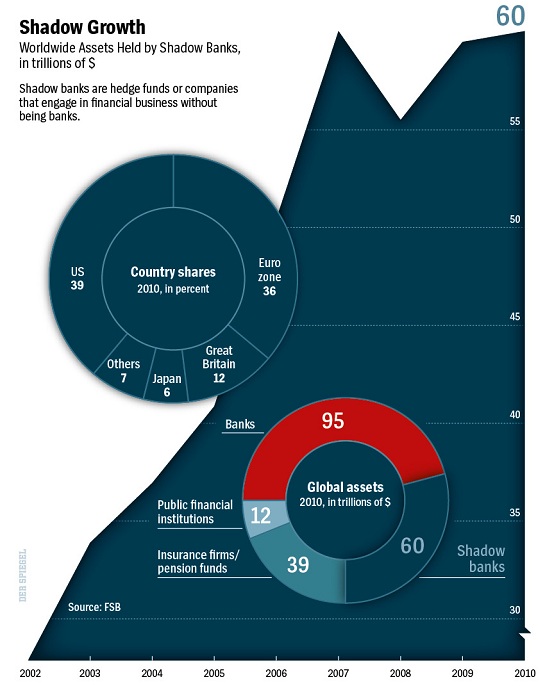
This is not an accurate reflection of China's financial dynamics. In China, the public financial sector is a shadow banking system, with monumental debt sitting on the books of local governments, all supported by the collateral of land stolen from peasants and developed by crony-capitalist partners of government officials.
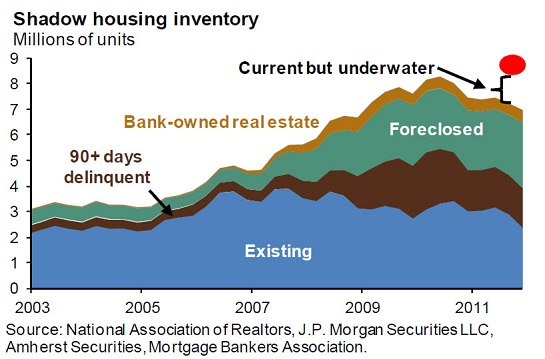
This strategy of artificially restricting supply while socializing mortgages has worked to a point, but housing is vulnerable to any slackening in demand or political pressure to limit the socialization of mortgages. For example, FHA, which has done all the heavy lifting since Fannie Mae was recognized as insolvent, will soon need a taxpayer bailout. Will the public ever tire of subsidizing a manipulated housing market? Stay tuned.
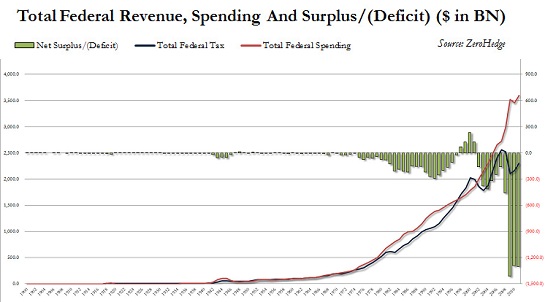
Here is a snapshot of impossible promises. Note that this chart dates from 2006, when all the world was in a bubble of credit and phantom assets; the true picture is now much worse. But what's noteworthy is even back in the "good times" the CBO (Congressional Budget Office) foresaw that tax revenues would flatline.
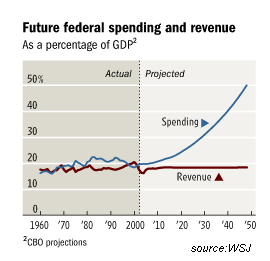
I would submit that tax revenues have topped out and will start declining, for structural reasons beyond the reach of politicos. Go ahead and raise taxes on everyone, or the top 10%, or some mix of both. People will avoid taxes by making less income, moving assets elsewhere, spending less or moving their enterprise to the cash-informal economy.
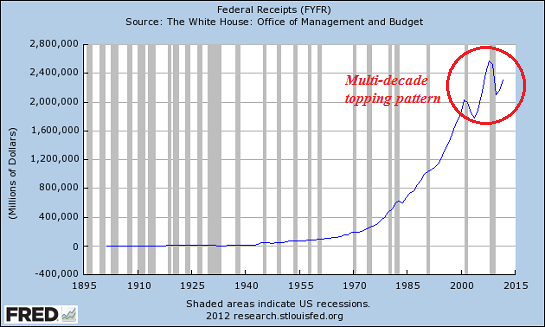
Federal spending has flattened after following an exponential curve upward for decades, but the 10,000 Baby Boomers entering Social Security and Medicare every day from now until 2025 will push spending higher.
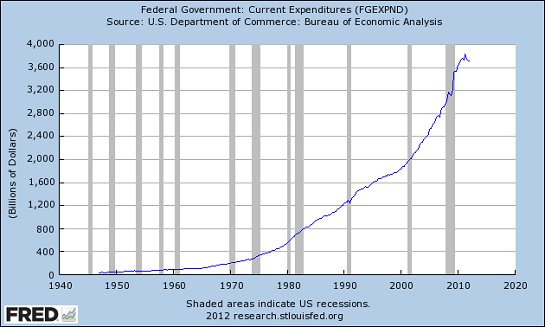
Estimates of future liabilities that exceed tax revenues run from $83 trillion to $120 trillion. Why the big gap? Federal officials are paid to underestimate future costs of these programs, and every one of their projections has been revealed as hopelessly lowballed.
My new book Why Things Are Falling Apart and What We Can Do About It is now available in print and Kindle editions--10% to 20% discounts.
 1. Debt and financialization
1. Debt and financialization2. Crony capitalism and the elimination of accountability
3. Diminishing returns
4. Centralization
5. Technological, financial and demographic changes in our economyComplex systems weakened by diminishing returns collapse under their own weight and are replaced by systems that are simpler, faster and affordable. If we cling to the old ways, our system will disintegrate. If we want sustainable prosperity rather than collapse, we must embrace a new model that is Decentralized, Adaptive, Transparent and Accountable (DATA).
We are not powerless. Not accepting responsibility and being powerless are two sides of the same coin: once we accept responsibility, we become powerful.
10% discount on the Kindle edition: $8.95(retail $9.95) print edition: $24 on Amazon.com
To receive a 20% discount on the print edition: $19.20 (retail $24), follow the link, open a Createspace account and enter discount code SJRGPLAB. (This is the only way I can offer a discount.)
| Thank you, Gail E. ($5/month), for your superbly generous subscription to this site -- I am greatly honored by your support and readership. | Thank you, Jason B. ($5/month), for your most-excellently generous subscription to this site --I am greatly honored by your support and readership. |



























